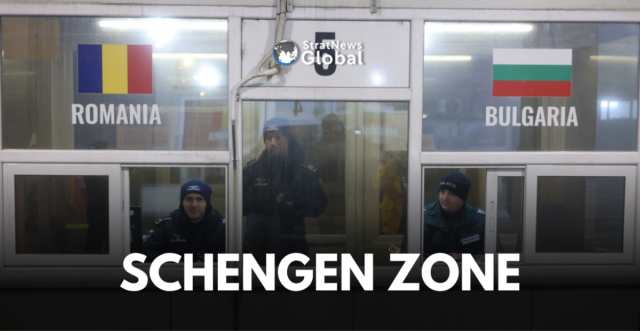Romania and Bulgaria scrapped land border controls to become full members of the European Union’s (EU) Schengen free-travel area on Wednesday. The two countries joined an expanded bloc of countries whose residents can travel without passport checks. This concludes years of negotiations for the Eastern European countries to join the EU.
Historic Moment
Fireworks lit the sky at a crossing close to the Bulgarian border town of Ruse just after the stroke of midnight as the Bulgarian and Romanian interior ministers symbolically raised a barrier on the Friendship Bridge straddling the Danube River. The crossing is a major transit point for international trade, and bottlenecks are common.
“This is a historic moment,” said Bulgarian Prime Minister Dimitar Glavchev. “From Greece in the south to Finland to the North and all the way to Portugal to the West – you can travel without borders.”
Checks on travelling by air and sea from Bulgaria and Romania were lifted in March 2024, but land checks continued until Austria last month dropped a veto it had maintained on the grounds that more was needed to stop irregular migration.
Schengen Visas
Border checks between France, Germany, Belgium, the Netherlands and Luxembourg were first dropped in 1985. The Schengen area now covers 25 of the 27 EU member states, as well as Iceland, Liechtenstein, Norway and Switzerland.
Ireland and Cyprus are not members of the Schengen zone.
The European Commission highlights that the Schengen zone enables the free movement of over 425 million EU citizens, as well as non-EU nationals living in or visiting the bloc.
It also allows individuals within the bloc to travel, work, and reside without requiring special formalities. Recognized as the largest free movement area globally, the Schengen zone occasionally sparks tensions among member states over issues like security and migration.
(with inputs from Reuters)





